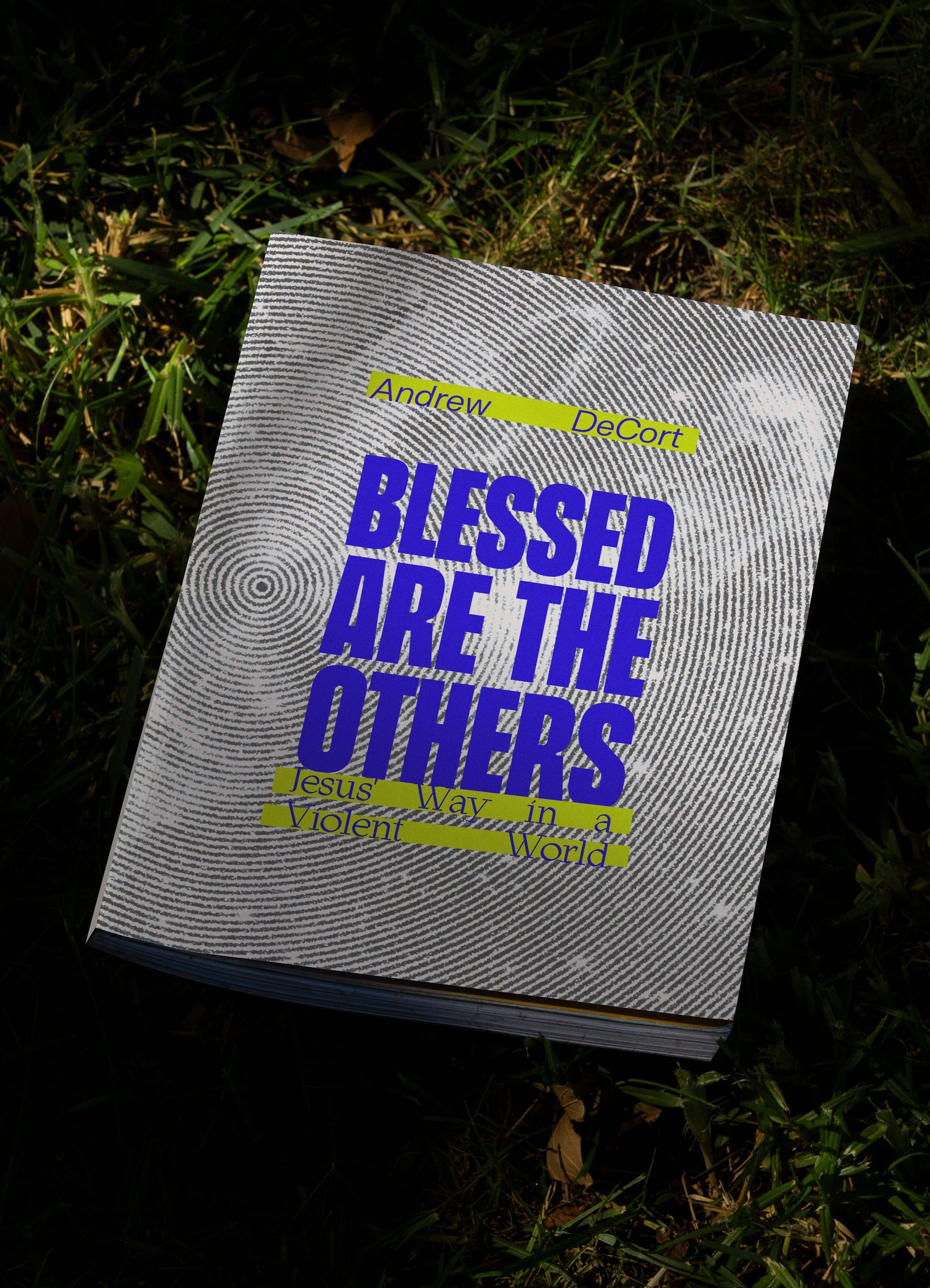About Blessed Are the Others
Blessed Are the Others: Jesus' Way in a Violent World by Andrew DeCort is a guide that navigates the teachings of Jesus through the lens of the Beatitudes. It offers a trail to a more fulfilling life through vulnerability, compassion, nonviolence, justice, and peacemaking, challenging conventional understandings of religious blessings and prosperity. Andrew calls this humane happiness.
The book is not just about exploring spirituality but also delves into historical and societal context—specifically the influence of political unrest and conflict on the Ethiopian people. It emphasizes the importance of confronting and processing grief and focuses on the societal implications that arise from unresolved pain. Notably, Blessed Are the Others encourages its readers to engage with their pain, promote healing not vengeance, and find solace even amidst suffering. By acknowledging these struggles, the book underscores the transformative power of facing grief with honesty and bravery.
The book also features real-life examples of individuals like Etty Hillesum and Dietrich Bonhoeffer who chose mercy over judgment in the face of extreme injustice. It makes an appeal to its readers to foster a similar sense of compassion and understanding, treating the Beatitudes as a tool for navigating challenges such as poverty, grief, violence, and injustice. Moreover, the book explores the life and teachings of Dietrich Bonhoeffer, a Christian leader who spoke out against extreme injustice during World War II. Bonhoeffer’s dedication to love, humility, and the courage to stand against oppression is extensively highlighted. His teachings and life offer insightful perspectives on love and humility as transformative powers even in the face of adversity.
Blessed Are the Others
discusses the seven decisions or way-stations on Jesus' Beatitudinal Way, beginning from poverty and transitioning all the way to persecution. It emphasizes the importance of vulnerability, compassion, and justice, and addresses the hurdles we may encounter on this path.
“This book is required reading for those who understand the need for a deep connection between subtle analysis and empowered spirituality, especially as it relates to the prophetic Christian tradition!”
Dr. Cornel West
“Blessed Are the Others is a profound and transformative journey into the depths of human suffering, resilience, and the pursuit of justice. Through personal narratives, historical reflections, and spiritual wisdom, Andrew DeCort challenges understandings of compassion, equips us to navigate complexity with grace and courage, and invites us into the paradoxical joys of Jesus’ ‘Beatitudinal Way.’”
Dr. Noah Toly
Provost of Calvin University
"In this powerful new book, Andrew DeCort shows us that ancient sacred texts can still serve as anchors and guides for how to live and treat one another in the modern world.”
Dr. Eboo Patel
Founder and president of Interfaith America
About the Author
Andrew DeCort
Andrew DeCort has been called a dissident theologian by his friends. His work is deeply inspired by Dietrich Bonhoeffer, his writing by James Baldwin, his spirituality by Etty Hillesum. He received his PhD in religious and political ethics from the University of Chicago, and his work through the Neighbor-Love Movement has invited over 20 million people into nonviolent spirituality. He's the author of
Flourishing on the Edge of Faith
(BitterSweet Collective) and writes the newsletter
Stop & Think at andrew-decort.com.


Blessed Are the Others FAQ
What is Blessed Are the Others about?
Blessed Are the Others is a thought-provoking book by Andrew DeCort that delves into Jesus' teachings on happiness, poverty, grief, nonviolence, justice, and compassion. It contrasts these teachings with contemporary issues such as religious nationalism and the prosperity gospel, offering personal stories and historical insights, particularly from Ethiopia's civil war, to present a path to humane happiness and societal healing.
Who is the target audience for Blessed Are the Others?
The book is aimed at spiritual seekers, people on the edge of faith, and those exploring or considering exiting Christianity. It's designed for individuals seeking a deeper understanding of happiness and societal healing through the lens of Jesus' teachings.
How does Blessed Are the Others approach the topic of nonviolence?
Nonviolence is depicted not just as a moral stance but as a way of life that transitions grief into gentleness, increasing vulnerability. It explores Jesus’ own path of nonviolence, emphasizing its risks and the courage it demands, especially in contexts marked by conflict like genocide and civil war.
What does the book say about justice and the hunger for change?
Andrew DeCort portrays justice as a manifestation of love in the public sphere, driven by a profound desire for real change and healed relationships. The book discusses how the practice of nonviolence can awaken a deep thirst for justice, envisioning a society built on right relationships and mutual flourishing.
Can you tell me about any personal stories included in the book?
Andrew begins this book by telling his story from 2023, what he describes as the hardest year of his life. Another poignant personal story shared is that of Selam, a Tigrayan educator and anti-war activist, who recounts her harrowing experiences during Ethiopia's civil war. Her story, alongside others, serves to ground the book’s themes in real-world struggles and resilience.
How does Blessed Are the Others reinterpret Jesus’ teachings?
The book offers a fresh perspective on Jesus’ teachings by framing them as a path to becoming more humanely happy, diverging from traditional religious teachings on happiness. It suggests a revisionary identity based on theology that emphasizes love, blessing, and nonviolence towards everyone, including those traditionally viewed as enemies.
What are the key stages of the Beatitudinal Way as presented in the book?
The Beatitudinal Way encompasses eight transformative stages: poverty, grief, nonviolence, hunger for justice, compassion, cleanheartedness, peacemaking, and persecution for justice. Each stage is interconnected and revisited throughout life, offering a cyclical practice for personal and societal transformation.
How does the book address the issue of persecution for justice?
It highlights that the path of peacemaking and justice often leads to persecution, as it challenges supremacist identities and militarized power structures. The author shares personal experiences of persecution in Ethiopia, illustrating the real-world implications of advocating for peace and justice.
What promise does Blessed Are the Others offer to its readers?
The book promises that despite the persecution and challenges faced on the path of the Beatitudes, those who follow this path belong to God and are part of the kingdom of heaven. It presents Jesus’ path as one that offers a more beloved identity and secure belonging than those found through othering and religious nationalism.
Is Blessed Are the Others critical of traditional religious practices?
Yes, the book critically examines traditional religious nationalism and the prosperity gospel, contrasting these with the teachings of Jesus. It invites readers to reflect on what is truly worthy of ultimate love and loyalty, suggesting that a reorientation towards nonviolence, compassion, and justice is essential for personal and societal healing.
What People Are Saying About Blessed Are the Others: Jesus' Way in a Violent World







